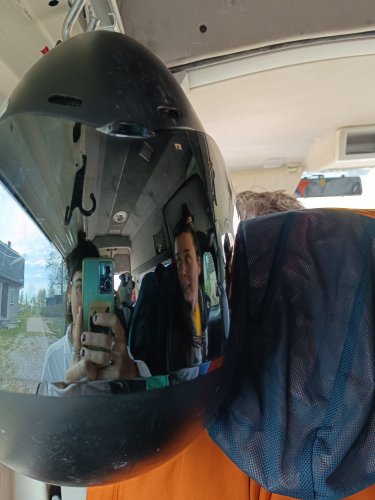
What Do You Actually Do at Re-Wild?
“So… what do you guys do at Re-Wild?”
“We explore the ecocentric model of human development, developed by Bill Plotkin, and look for ways to apply it in our youth work.”
“Okay… and how exactly do you explore it?”
“Well, sometimes we just try to receive information about ourselves—or the world—by spending time in the wild and being open to what it tells us.”
“Wait, what?”
“Have you ever asked yourself where the information you perceive each day actually comes from?”
“Umm… my mind?”
“Heh. Better take a seat, friend. This might take a while. ”
Let’s unpack this.
The Four Windows of Knowing
To explain what we do at Re-Wild, I first need to introduce the model of Four Windows of Knowing. Originally presented by Eligio Stephen Gallegos and later adopted by Bill Plotkin, this model suggests that we humans have not one, but four primary ways or windows of knowing:
- Deep Thinking
- Sensing
- Feeling
- Deep Imagination
According to the authors, all four are equally valid. None is more “real” or “important” than the others. That idea alone shifts a lot, especially if you’ve grown up in a culture where rational thought is placed on a throne and everything else is seen as… well, a little suspicious.
There is also a fifth element that ties them all together: intuition. Intuition acts like the inner compass that helps us navigate and interpret the insights that come through each of the four windows. And here is the cool part: even if intuition feels distant or unfamiliar, it is something you can cultivate—by noticing when it shows up and consciously choosing to listen to it.
Four Ways to Experience a Table (Yes, Really)
Let’s take something as ordinary as a table and look at it through the four windows of knowing:
1. Deep Thinking
This is the one we’re all trained in.
“Ah yes, that’s a table. It’s made of wood, it’s rectangular, and it’s a bit wobbly. It’s made of oak, so most probably it will serve for a long time. ”
It’s analytical, fact-based, logical.
2. Sensing
What does the table feel like through your senses?
What’s its texture? Its temperature? How does it sound when you tap it? Does it smell like fresh-cut wood or damp basement? And beyond that:
What kind of vibes does it give off?
Does it feel welcoming? Cold? Familiar? Strange? Does it seem like something you’d want to sit at, or avoid?
3. Feeling
What emotion arises when you interact with this table?
Is it nostalgia? Annoyance? Peacefulness?
Can you name the emotion?
Where do you feel it in your body?
4. Deep Imagination
Now things get weird—and beautiful.
What else could this table be?
If it were a person, what would it say?
Would it whisper secrets or shout commands? Would it love you or judge you?
And This Changes Everything
Now here’s the real shift: What if all of that is valid information? What if the subtle sense that a table gives off bad vibes—or that it would have a harsh, raspy voice—matters just as much as the thought “This is a cheap, broken table”?
For many of us raised in modern European (or Western) cultures, this is a radical idea. We’ve been taught to prioritize rational thinking and treat everything else as secondary—or downright unreliable.
- Emotions? Maybe allowed, but often misunderstood.
- Sensations? Reserved for poets or hippies.
- Imagination? For children, not serious adults.
- And intuition? Often ignored entirely.
But… what if those ways of knowing aren’t distractions? What if they’re essential?
Let’s get really wild for a moment.
Imagine you’re walking through a forest. You pass a tree and suddenly feel completely invited to hug it. You do. Then, on impulse, you ask the tree how it’s doing. And to your surprise, you imagine that it’s… sad.
So now what? Is that less real than a scientific assessment of the tree’s health?
Does that emotional connection deserve less weight?
What if a dream you had last night holds a truth about your life that your rational mind hasn’t figured out yet? What if staying open to these ways of knowing makes us more responsive, more compassionate, more alive?
So, What Do We Do at Re-Wild?
We explore precisely that. We explore the idea that we are part of the world and the world is speaking to us through more than just facts and logic. That we can hear it better—understand it more fully—when we listen with all four windows open.
Written by Gloria Pascual Torres.
Project “Re-Wild” is financed by the Erasmus+ Programme of the European Union that in Romania is administrated by the National Agency for Community Programs in the Field of Education and Vocational Training. The article reflects only the opinion of the author.